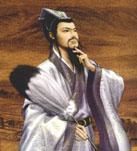
The new 'great game' being played out in Central Asia tends to overshadow the cloak-and-dagger contests in our own Pacific neighbourhood. While the Australian media has occupied itself covering the ADF's fencing with Solomon Islands warlords and the Japanese whaling industry's aid-for-votes offensive, pride of place goes to the long-running battle between Beijing and Taipei for recognition by such international heavies as Palau and the Marshall Islands. Given the PRC's UN seat and Taiwan's cold-shouldering across the who's-who list of global politics, this might seem an exercise in small-mindedness on Beijing's part, but the stakes aren't as petty as the Micronesian location suggests.
For instance, the 2003 decision by Kiribati's new president to recognise his electoral paymasters in Taipei genuinely put the screws on Chinese policymakers, as severing diplomatic relations - unavoidable under the One China policy - would compromise China's equivalent of Pine Gap (the CIA-run satellite tracking station in the Australian desert). It's a measure of how seriously Beijing treats the 'Taiwan problem' that it went ahead anyway, keeping its flag flying in Tarawa just long enough to dismantle the station and ship it out in pieces - despite the facility's importance to China's fledgling space program and for monitoring US missile testing at Kwajalein, a mere 800 km away.
The PRC's atavistic urge to destroy any rival claimant, past or present, to the Chinese polity has hounded Taipei's formal presence from every foreign capital outside the poverty bands of the Caribbean and South Pacific. Since his whirlwind Latin American tour (with a two-day stopover in New York) in 2001, Chen Shui-bian has had to get used to wearing flower garlands instead of ties on state trips overseas. His plaintive plea for Canberra to allow him toilet-breaks in Sydney en route to more broad-minded countries, coming hard on the heels of the unedifying Chen Yonglin affair, has sparked debate in Australia over how far we should go to ostracise a liberal democracy on behalf of a one-party autocracy; an overview may be found at this post on a friend's blog.
Diplomatic recognition may be out of reach, but perhaps we should think twice about endorsing efforts to deny Taiwan the most rudimentary national functions; even Taipei's attempts for WHO observer status have been scuttled from across the Strait, a particularly obnoxious move given Beijing's failure to contain eruptions of killer viruses in Guangdong's ancient disease cauldron, which led to Taiwan suffering a similar SARS crisis to non-renegade Chinese provinces. However John Howard's recent explicit distancing of his government's stance towards China from that of Washington - comments made while literally standing shoulder to shoulder with George Bush - must have dashed any hopes Chen had of rounding out his tropical travel record with a visit to Taiwan's twelfth-largest trading partner.

3 comments:
You describe President Anote Tong as having acted to recognise his "electoral paymasters in Taipei". As far as I am aware there is no evidence to suggest that President Tong received any money from the Taiwanese. To the contrary, it is his brother (and political opponent) Dr Harry Tong who has admitted receiving several tens of thousands of dollars from the Taiwanese prior to the July 2003 Presidential elections (contested by both Anote and Dr Harry, and won by Anote). See the Pacific magazine article from February 2004 at http://tinyurl.com/8dzdm.
Harry Tong unsuccessfully brought allegations of electoral fraud against Anote in the Kiribati High Court. Harry admitted to literally receiving bags of cash from Taiwan in exchange for signing an MOU (IOU?) to recognise Taipei should he be elected. It was alleged but not proven that one of Anote's anonymous donors was the ROC govt. What appears most likely is that the Taiwanese hedged their bets by funding both brothers through different means - see this reproduced Baltimore Sun article. In any case Anote's said openly that Taiwanese aid money was the deciding factor in recognising Taipei (see above link).
In case people are wondering, Tong is indeed a Chinese surname (their father was a post-WW2 Chinese immigrant). Similar to how Fijians of Indian origin dominate Suva's politics, I suppose.
A neat overview of the PRC-ROC Pacific contest and in particular of the Kiribati affair can be found here. Note the speculation that China is building up its Pacific relations as a base for naval power proejction vis-a-vis the US - a replay of Japan's bid for a South Seas empire during the early 20thC. Yet another case of the PRC stealing a march on the US in their common backyard.
See this article for a follow-up on the implications of China losing its Tarawa satellite facility.
John, just to be pedantic - the election petition in the High Court was brought by two parliamentary colleagues of Harry's (and a third person, not an MP). Harry did not have any direct personal involvement. Further, there were no allegations concerning the Taiwanese raised during the hearing, which was over by the time Kiribati recognised Taiwan (see the judgment at www.paclii.org/ki/cases/KIHC/2003/1.html). Keep up the good work.
Post a Comment